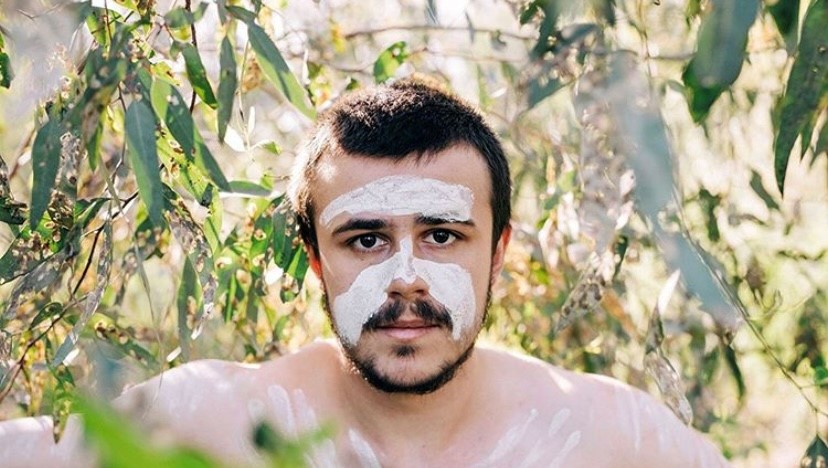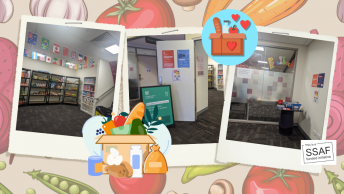This post is over three years old, the information may be outdated.
Today is University Mental Health Day – a day to raise awareness of the importance for students and staff to take care of their mental health and wellbeing.
As part of University Mental Health Day, everyone is encouraged to take the time to reconnect and hold conversations to help build a supportive community.
Charles Sturt student, Patrick Saul, kindly sat down with us and shared his story.
What are you studying and what has inspired you, or led you down this path?
I am studying a Bachelor of Social Work at Charles Sturt University. During high school, I was able to have work experience at Headspace in Dubbo while in Year 10. I was also involved in the Headspace Dubbo Youth Reference Group. After that week of working at Headspace, I fell in love with the social work sector, especially community development.
Because of my interest, my family and I started looking at pathways into the social work sector. That then led me to having a school-based traineeship with Headspace Dubbo during my final two years of high school studies. I then applied to Charles Sturt and to my excitement, I was accepted!
Earlier this year, I accepted a position as a First Nations Cadet at Charles Sturt University, working within the Equity & Diversity team. This allows me to gain further experience relating to my degree during my third and fourth years of my degree.
Tell us about when you started to recognise that you were suffering from negative mental health
During my final year of high school studies, I was dealing with a bad break up which changed the way I interacted with everyone on a daily basis.
Everyone was asking if I was okay, and I felt I had to lie and pretend I was fine. I have always been the type of person to try and deal with it myself – I didn’t want to feel like I was a burden to anyone.
Until one day, I had a break down in front of my parents and told them everything going on in my life. Their response and support were really important. They were non-judgemental and listened to what was going on.
After this, my parents decided that the family was having a mental health day, which consisted of my mother, my father and I watching movies in the lounge room and we ordered pizza. They also encouraged me to access Headspace Dubbo to get some strategies.
What strategies have you developed and what services have you used to help guide you through your journey living with mental health conditions?
When I was younger, I accessed a counsellor at Headspace Dubbo, who helped me develop strategies to cope with stresses and look after my mental health. One of the most prominent strategies I use is playing video games to de-stress myself and relax for a while. Once I’m done playing, I am able to think clearer about the situation and look at it from different angles. I also enjoy hanging out with my friends, and making sure I reach out and ask for help when I need it.
Living with mental health conditions is a journey. What advice or message would you like to give other students who might be reading this article?
During my time at Headspace Dubbo, we would go out and visit schools regularly. During one presentation, the facilitator told me that “a problem shared is a problem halved”. At first, I was really confused in what that meant and actually thought it was pretty stupid.
While we were presenting to the class, we did an activity with the kids where one volunteer had to juggle ‘stresses’ in their life. Each balloon represented a different stress, and one-by-one they were slowly introduced to the volunteer, who was not allowed to let the balloons touch the floor. Once about 4 or 5 balloons were in the air, it was hard to keep track and one eventually touched the ground.
The next time the young person was dealing with these balloons, he was allowed to call a friend up to help juggle all the balloons. At the end of the activity, the class was told that “a problem shared is a problem halved”. It finally made sense to me and I still tell that story to people I meet today.
What do days like University Mental Health Day mean to you?
Days like University Mental Health Day and other recognition days show people that they are not alone in their struggles. It is about recognising that everyone has stresses and problems in their life, and that help is available with whatever they are going through. It also gives people an idea of what services and support are available.
It’s a friendly reminder to check in with those around you and to start a conversation – mental health matters every day of the year.
What would you like to #useyourvoice for in the future?
I would love to use my voice to break down the stigma of mental health and to show people that a problem shared is a problem halved.
Where to get support
It’s important to look after your mental health and wellbeing every day of the year. Charles Sturt University has a range of information and services to support you. Visit the students Safety and Wellbeing page.










